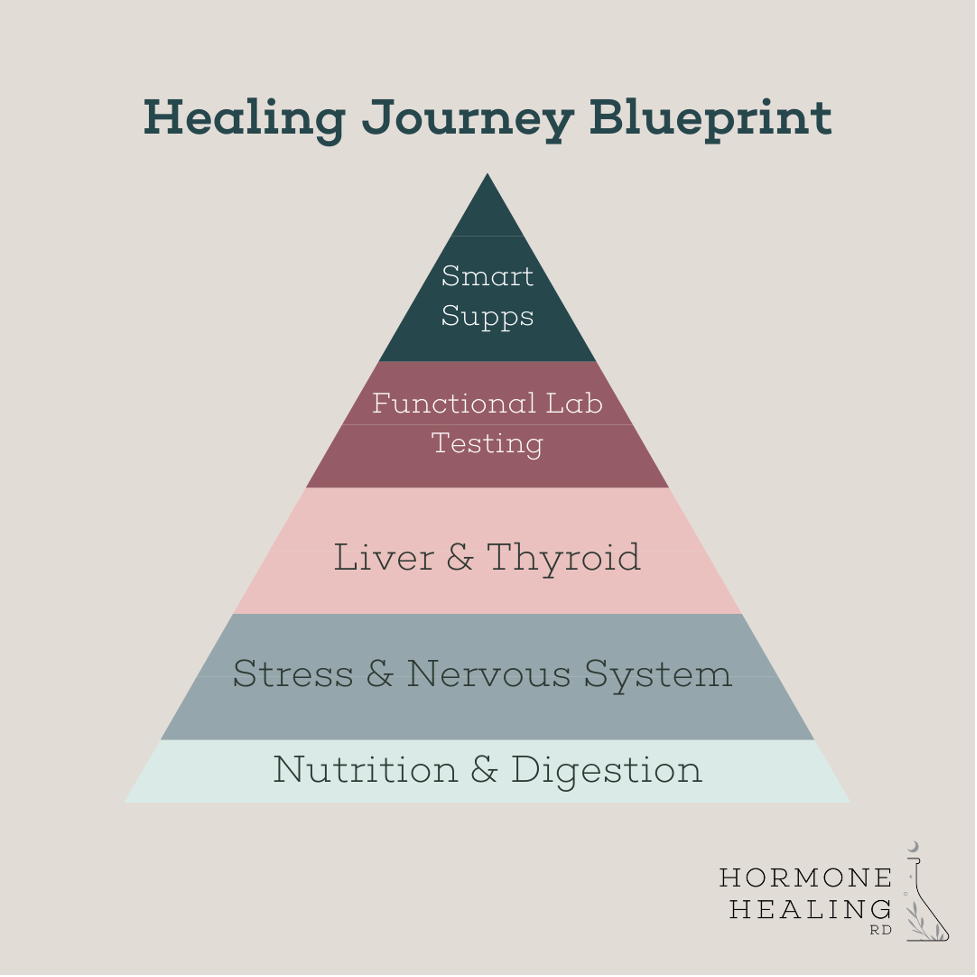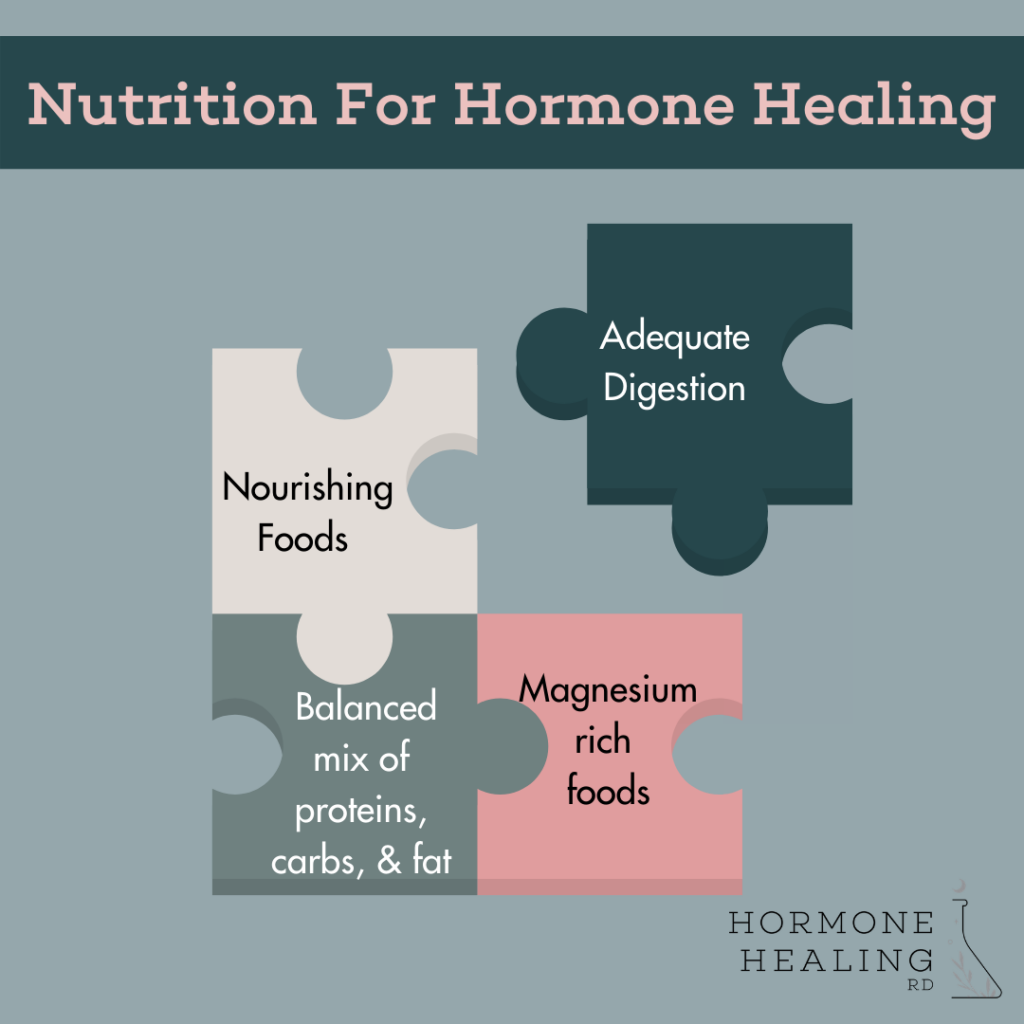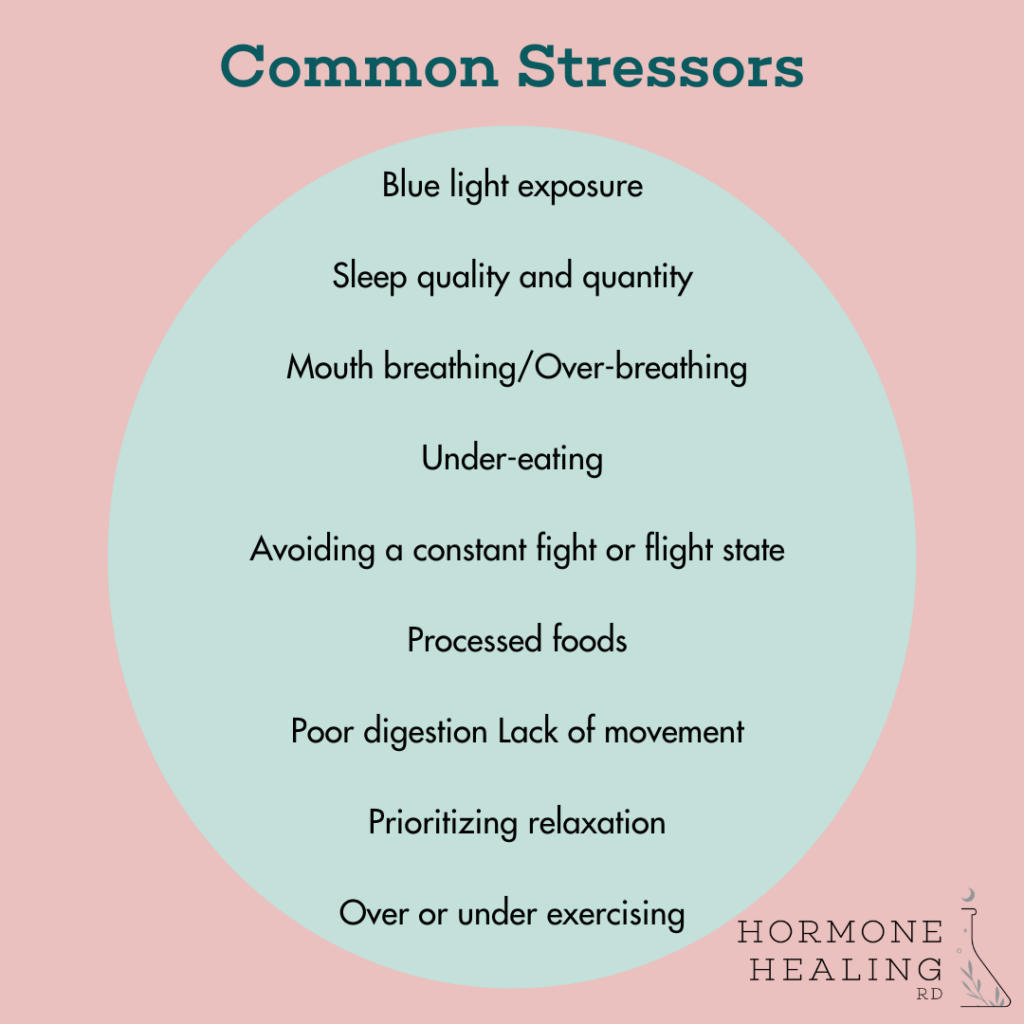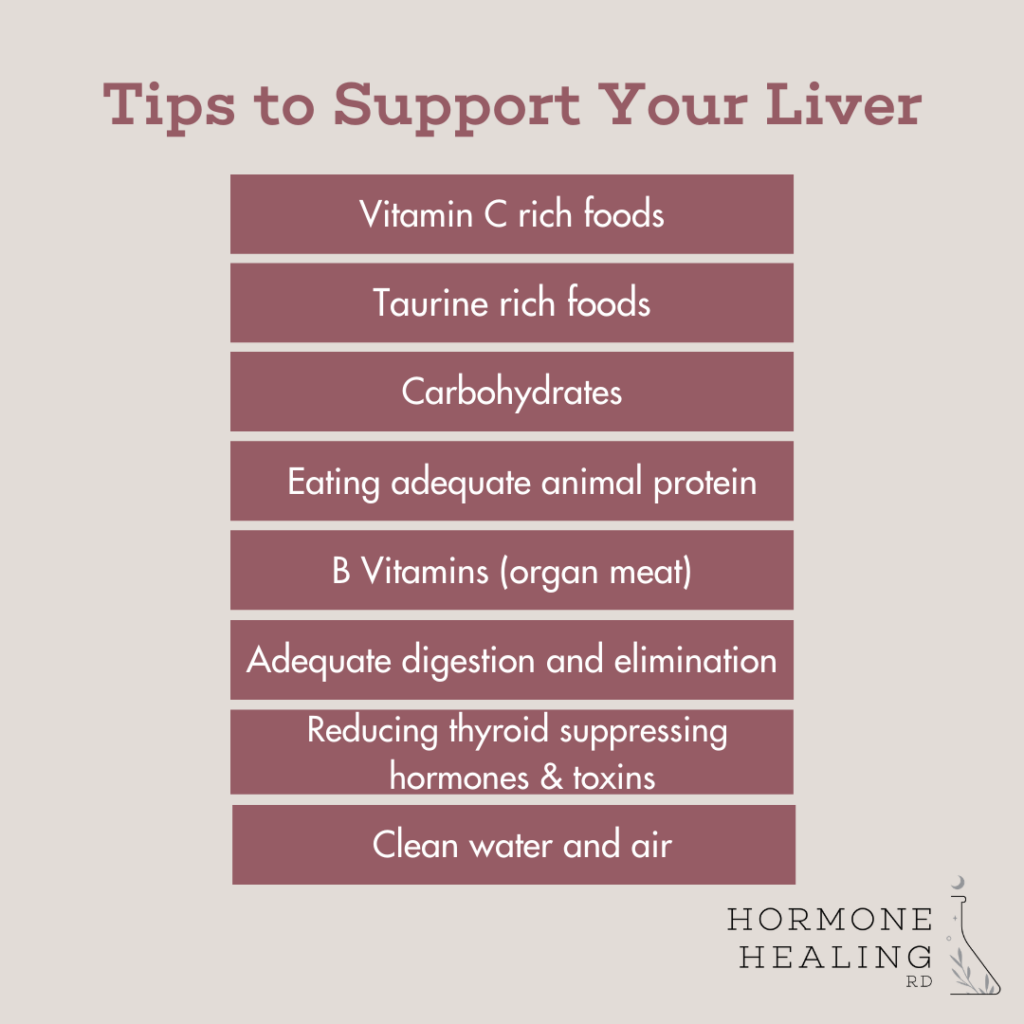Do you feel like your journey towards healing your hormones is like going through a maze? If so, you’re not alone. I receive questions daily from women on their healing journeys. Many of these questions varied based on their primary health concern, but the theme was the same: where do I go next? So, I started thinking about all of the different ways I help women. There are many things I’ve created to support women on their healing journeys (and more to come) since everyone is at a different place with specific needs. While we are all unique, I believe there is a blueprint that we can all employ to keep things simple and heal.
Since I can’t answer every message or email sent to me, I’ve mapped out this blueprint to help those in need get started and map out what might help them. I hope this goes without saying, but I cannot answer medical questions or comment on lab results. It puts my medical license at risk and isn’t safe since I don’t know the person’s medical history, current supplements/medications, and nutritional status. Please make sure you talk with your healthcare provider before implementing anything you read. This is for educational purposes only. Let’s dig into each layer of this blueprint!

Nutrition & Digestive Support
I go back and forth with nutrition being number one and evaluating your stressors. Mostly because I feel that nutrition is a great way to reduce stress, but lack thereof can create a stress response within the body. In practice, I think focusing on your nutrition first can help you reduce stressors and move the needle forward in all other categories, which is why it’s the first part of the blueprint.
Supportive nutrition includes nourishing foods but also eating enough food in balanced amounts. Our bodies require a mix of protein, carbs, and fat to function optimally. They also need micronutrients (vitamins and minerals) for specific processes to be thoroughly carried out. For example, minerals work as enzymes in the body, meaning they kick off reactions. Magnesium is essential for the body’s ability to respond to stress. It’s the first mineral used up during the stress response because it is kicking off that reaction. That is why many people feel better when they take magnesium. Some people feel worse because they need magnesium, and all of the responses it kicks off have been slowed down and are starting to turn back on.
The other big piece of the nutrition puzzle is having adequate digestion. If we cannot make enough stomach acid, bile, and digestive enzymes, we can’t properly break down and absorb our food. This creates stress and compensation within the body and leads to health issues down the road. Hopefully, you can recognize the importance of nutrition. It’s a great first place to start and will give you plenty to focus on before getting testing done or doing the more advanced steps in this blueprint. Once you have that in place, the next step is evaluating stressors and balancing your nervous system.

Stressors & Nervous System Balance
The next big area of focus is evaluating the stressors in your life. Stressors are anything that leads to compensation within the body. This is not an exhaustive list, but these are the top stressors I see with the clients I work with:
When we can recognize what stressors we have, we can start working on supporting our bodies. Identifying stressors doesn’t mean we have to get rid of all stress. It’s more about knowing what your current state is when it comes to stress and either reducing and/or implementing activities into your day that help balance your nervous system. Meaning these activities help get you into a relaxed state. This helps build resiliency rather than keep you in a constant fight or flight state that breaks down stores in the body for energy and eventually leads to burnout and hormone imbalances.

Liver & Thyroid Support/Reducing Toxic Load
The third big area of focus is the liver and thyroid. Many of the women I work with have a liver that is working overtime due to excess estrogen, poor digestion, an abundance of toxins in our environment, and a lack of proper nutrition. This poor liver function leads to low thyroid function and hormone imbalances. We can support our liver through nutrition, digestion, and reducing our toxic load (the number of toxins in our body at any given time). We don’t have to be perfect when it comes to reducing our toxic exposure. Even making one change a month will help reduce the toxic load in the body long term. Things to consider when it comes to our liver:

Functional Lab Testing
It is tempting to want to start with lab testing. Many of us want answers. We’ve been told everything looks “normal” on our bloodwork, and in general, feel frustrated with the care we’ve received. It’s natural to want to uncover what’s going on under the hood inside our bodies, but I encourage you to start with nutrition and stressors at a minimum before lab testing. Why? If you have many nutrition and lifestyle changes to make PLUS you now have a protocol to follow, it can be overwhelming. Starting with the basics is the best option. Then you can consider lab testing to help you understand what nutrition, lifestyle, and supplement recommendations are going to help you move the needle most.
A question I get ALL the time is, “What lab test should I do?” I recommend starting with hair mineral analysis because it provides such a wide range of information and gives the information you need to start feeling better and seeing change. You not only get to know if you have nutrient deficiencies, but also what stage of stress you are in, how the thyroid is functioning on a cellular level, and if you have anything that is preventing you from healing (like the high calcium mentioned previously). You also give insights into digestion. It’s the best bang for your buck and lets you address multiple areas. This is the test I use with all clients. Then we consider gut and hormone testing as appropriate, but we never skip the hair test! If, after reading this, you feel that you are at this step, head over to my website to learn more about how you can get lab testing done. Once you have your lab test results, you can move onto the last step: smart supplementation.
Smart Supplementation
One thing I’ve realized over the years is that people often don’t know why they are taking many of the supplements in their cabinets. Often, they heard about it on a podcast, from a friend, or on social media, so they decided to implement it. This is problematic for me since supplements are very powerful. I often see women taking high levels of supplements that seem harmless and create stress and compensation within the body. A common one I see if vitamin D. Vitamin D is more like a hormone. While we need vitamin D, the best form is sunlight and what naturally occurs in small amounts in food. When we take excess vitamin D, we can end up releasing calcium from our bones and teeth. I see this on hair mineral tests all the time. Calcium is very high, meaning it is leaving the cell and then binding to iodine receptors. This means the thyroid hormone cannot bind properly and can lead to hypothyroid symptoms. It’s also important to note that low vitamin D levels are often the result of other nutrient deficiencies like magnesium and vitamin A.
All of this is to say that we want to be smart with supplements. They are powerful and can do more harm than good if we take supplements that aren’t appropriate for us. I always recommend whole-food-based supplements whenever possible, but ideally, you work with a healthcare practitioner to understand what is best for you. This is why supplements are the step in the blueprint. Ideally, you’ve had some lab testing done to know what types are best for your body and health concerns.
The healing journey can feel confusing. There’s so much information out there, many of which are conflicting, and you can quickly get FOMO if you’re following people on social media who are sharing their journeys. I hope this blueprint helps guide you and answer questions that have come up along your journey and the tools I created help you take healing to the next level. One such tool is my Master Your Minerals online course, in which you’ll learn how to interpret your own HTMA and build a hormone healing protocol based on your unique results. No longer will you have to rely on someone else to tell you how to support your body—this course gives you the tools to make the best hormone healing decisions for you. Ditch the endless confusion and join today!
